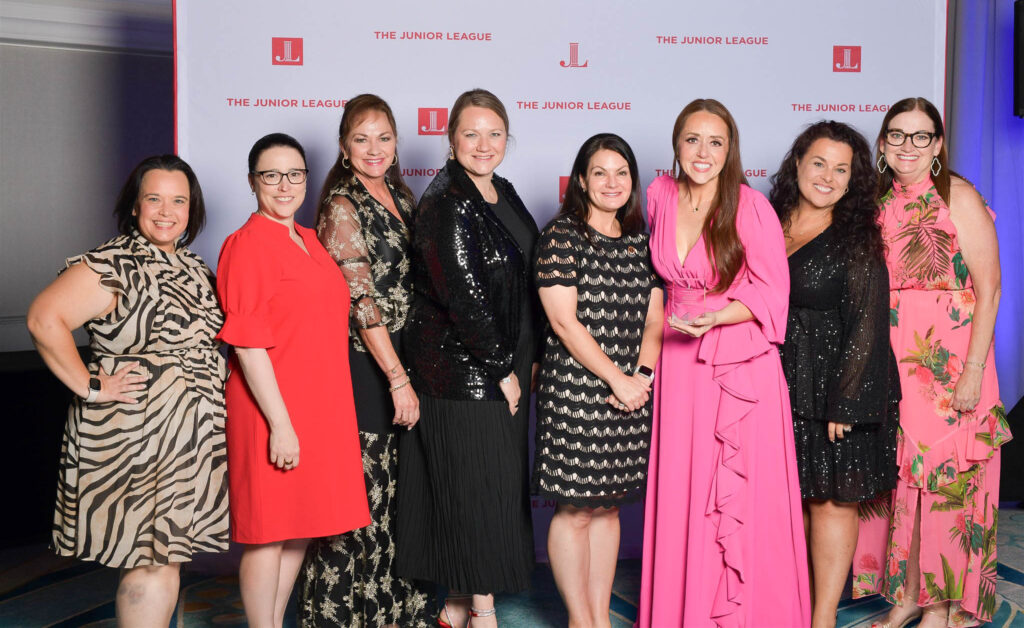

The Junior League of The Woodlands, TX
Over the past several years, Junior League of the Woodlands has transformed recruitment, onboarding, and engagement into an inclusive, flexible, and mission-driven experience that ensures every woman feels part of the fabric of their organization before ever officially joining the League. Some of the most substantive changes include eliminating sponsorship requirements, introducing a second cohort and right-sizing new member obligations. In addition, JLTW now invites prospective members to participate in community programs, fund development events, and affinity groups, allowing them to build relationships and experience the mission firsthand before ever officially joining. They also provide multiple recruitment pathways, offering virtual and in-person information sessions, as well as one-on-one meetings with board members. By shortening the new member experience to six months, members can now become active twice as fast as in previous years. JLTW has expanded affinity groups creating more touchpoints for engagement across interests and lifestyles. Finally, JLTW utilized their 35th anniversary in Launching the 35th Anniversary ReMember Campaign, inviting any past member who had resigned or been dropped to reconnect with JLTW and learn about our new programs, leadership opportunities, and enhanced engagement strategies. Congratulations to The Junior League of The Woodlands!
Award Recipients in Division 4 have 501+ Actives + Provisionals.
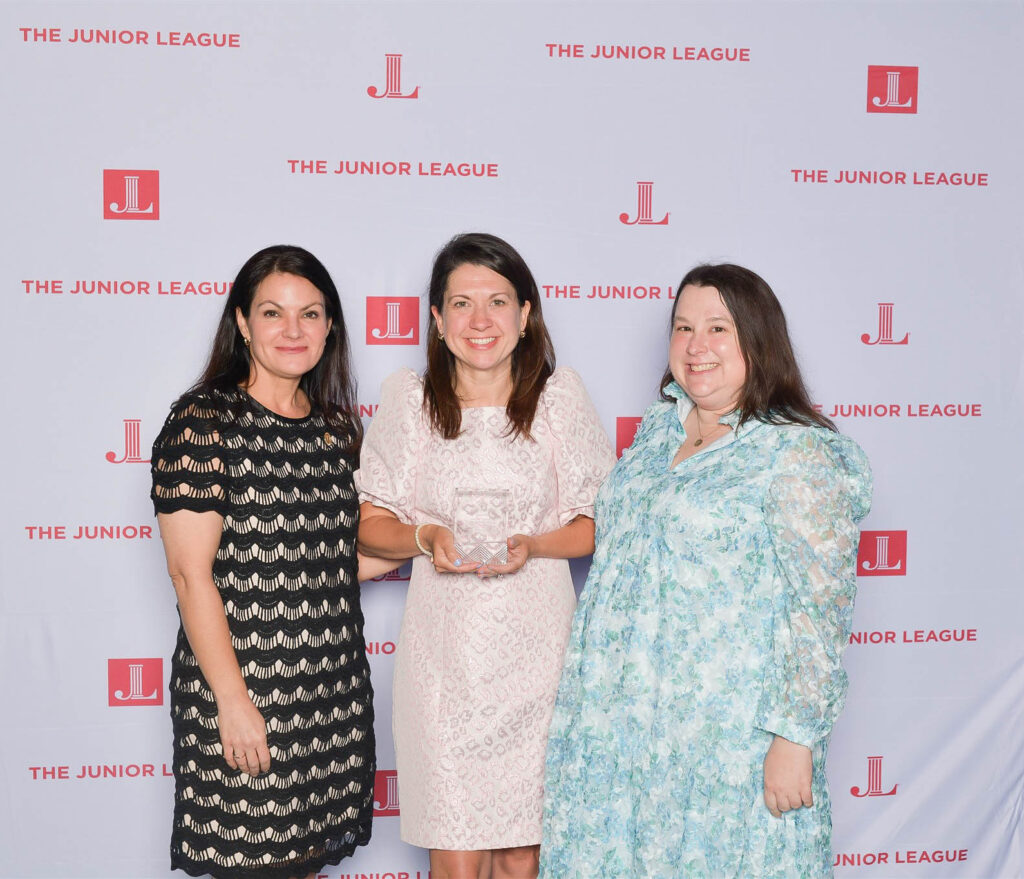

The Junior League of Northern Virginia, VA
The Junior League of Northern Virginia's (JLNV) Membership Council underwent a transformative restructure, strategically targeting engagement points throughout their Junior League experience. As a result, the Membership Council has become a model of success, fostering meaningful relationships, enhancing membership satisfaction, and driving growth and retention. With a dynamic structure encompassing key areas of new members, general membership events, and membership engagement, the Council focuses on every stage of a member's journey. Each group plays an essential role in delivering a valuable and enriching membership experience, resulting in increased satisfaction, growth, retention, and funding for the organization. This intentional, step-by-step approach to connection ensures that members are not only integrated into the League but also feel valued and part of a larger community. The effectiveness of this structure is evident in the high levels of engagement, retention, and satisfaction among members which has led to an increased participation in General Membership Meetings, 99% retention rate of new members, and improving overall Active member retention percentage to over 9%. The retention rate for Active members over 2 years is 94%, and the Sustainer retention rate is 98%. Congratulations to the Junior League of Northern Virginia!
Award Recipients in Division 3 have 151-500 Actives + Provisionals.
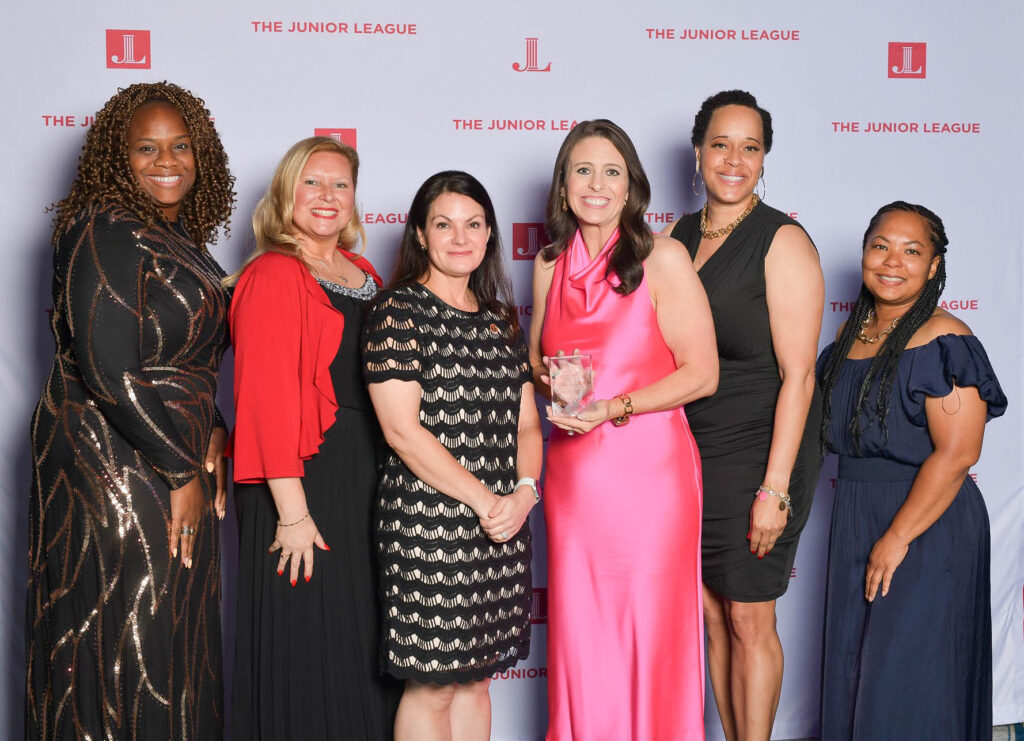

The Junior League of Columbus, GA
The Junior League of Columbus, GA revitalized its recruitment and onboarding process to create a more engaging and impactful experience for new members. They introduced the 2 cohort model which led to 29 new members this year, a large increase over their last few new member classes. Their redesigned onboarding process now includes the Member Essentials Intake Manager, a structured curriculum, and a mentor program that connects new members with active and sustainer members. By streamlining onboarding to 90 days, JLC increased early engagement, resulting in more active and enthusiastic members. Additionally, they launched AJLI's new member recruitment social media campaign to expand their outreach and attract mission-driven new members, successfully redefining the new member experience and creating a League that is more inclusive, dynamic, and mission-driven. JLC has seen an increase in participation, retention, and leadership growth while also ensuring members’ success, fostering a lifelong commitment to voluntarism, and strengthening The Junior League's legacy of leadership and service. Congratulations to the Junior League of Columbus, GA!
Award Recipients in Division 2 have 51-150 Actives + Provisionals.


The Junior League of Palo Alto - Mid Peninsula created New Member and Recruiting Teams in 2021 under the leadership of New Member/Recruiting Chair, Andrea Ressi. These Teams worked to meet their strategic goals of engaging and educating the community, recruiting and retaining new members and supporting new members as they transitioned to active by leveraging social media and inviting women to be a part of their Junior League movement, taking advantage of existing affinity group events, new member events, and all league events as recruiting events, creating fun, cultivated experiential events like retreats and training to celebrate the efforts of their New Member classes, and finally, fostering mentorship and community. The results speak for themselves, in two years, 59 new members have joined the JLPA•MP, and the retention rate of members in the past two years is at 98%.


During the isolation of the 2020-2021 pandemic League year, the Junior League of Nashville designed Membership Matters as both a mantra and engagement strategy for its 1,500 members.
Membership Matters reimagined how to connect with members, as well as serve the Nashville community and the League’s partners. The campaign highlighted how each individual makes a difference to the organization and what the Junior League as a collective contributes to the surrounding community. As the Junior League of Nashville was celebrating their 99th year as an organization, they highlighted “99 Reasons Why Membership Matters,” featuring one reason—a description, definition, anecdote, or individual recognition—each week in their e-newsletter, the primary source of communication with members.
The League featured corresponding photos on social media to reach a larger audience of followers. For 52 weeks, “99 Reasons” allowed the League to highlight individual members, provide education about all aspects of the League, introduce 23 different concepts that members could use to explain why they choose to be part of The Junior League, and clarify the current leadership’s interpretation of Mission, Vision, and Values.
From “99 Reasons” to having League Leaders regularly check in on their committees, groups, and individual members to sending a letter to membership incorporating member feedback, the Junior League of Nashville reached their goal of keeping members engaged and connected. Membership numbers increased, 150 eager women joined the 2021-2022 provisional class, and the Junior League of Nashville entered their centennial year with new energy, momentum, and engagement to carry their Mission forward in the community.


The 2021 AJLI Award for Membership Recruitment and Engagement goes to the Junior League of Seattle, Washington.
Congratulations on your Provisional Program! This program stemmed from Provisionals feeling unprepared for committee placements during their first active year, not integrated into the larger organization, and unaware of the League’s values, especially when it came to diversity, equity and inclusion. This program introduces new members to the League and paves the way for a successful League career. The program is instrumental in acclimating new members to the League’s values, mission, and vision through advising, curriculum & training, projects, building community and thoughtful recruitment. These efforts have led to a 90% retention rate for Provisionals.
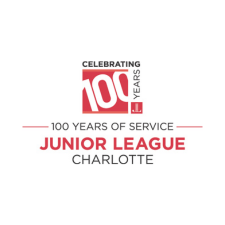

This year’s winner of the Membership Recruitment and Engagement Award is the Junior League of Charlotte.
The Junior League of Charlotte, Inc. (JLC) offers a wide range of training opportunities including GMM's, new member programs, 200+ leadership opportunities, and four signature training programs. Despite these offerings, 2016 membership survey results showed members wanted additional training opportunities, yet only 1% of members were attending the current offerings. They were missing the mark. Based on the membership survey, the Education and Training Council proposed a dedicated day for training during the first Tuesday of each month: “Training Tuesdays.” Members could plan to attend the regularly scheduled trainings, and leadership reserved this day each month so League activities would not conflict.
In addition to consistent scheduling, each year included a branded theme and dedicated hashtag. Thematic monthly programs were outlined for membership, t-shirts created to match each year’s theme, and a creative video kicked off the year to publicize the offerings to all members. There was a buzz! For the first time, trainings filled up months in advance and members filled a wait list. The same can be said of 2017 and each subsequent year.
Since revamping training, attendance numbers increased by 200% and, according to exit surveys, 98% of members rated these trainings a 4 or better out of a possible 5 (5 - excellent). Over 30% of current leadership attended Training Tuesdays; and 25% of Provisionals who participated in Training Tuesdays are now in leadership positions.
This committee listened to members and revamped leadership training resulting in dramatically increased member attendance, engagement, and satisfaction in leadership training.
Internally, the Tuesday Training revamp excited membership about leadership training. This is mission critical. Externally, our members are being sought out by community nonprofits to serve as Board members and are regarded as standouts for the leadership skills they have gained through the League.
Since revamping the program: 1) attendance at Tuesday Trainings has increased by 200%; 2) exit surveys show 98% of members rated these trainings a four or better out of a possible five; 3) 30% of current leadership attended Training Tuesdays; and 4) 25% of provisionals who participated in Training Tuesdays now serve in leadership positions.
Most significantly, 99% of attendees reported they met someone new at Training Tuesday, leading to increased member engagement.
Member feedback directed JLC in providing training opportunities aligned with the needs and interests of its membership. The number of completed surveys at each training increased as members recognized adjustments were made based on feedback. Based on Training Tuesdays’ success, all committees who provide training opportunities survey participants in a standardized form and seek feedback on how trainings can be improved. Additionally, committees now add videos, hashtags, and integrated social media into annual communication plans.
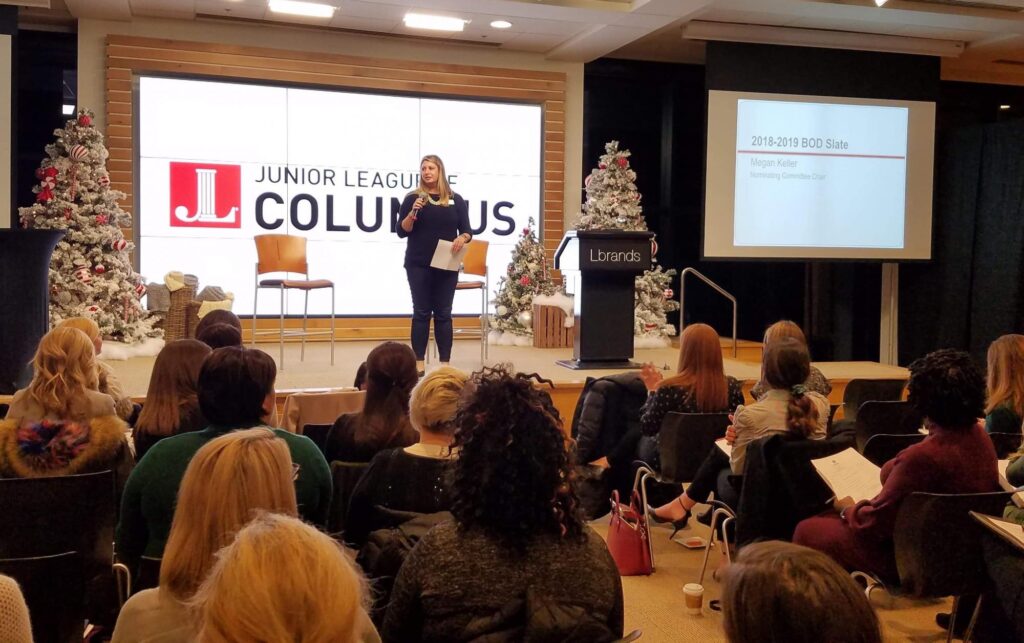

This year’s winner of the Membership Recruitment and Engagement Award is the Junior League of Columbus, Ohio.
Over a six-year period, the Junior League of Columbus experienced a 59% decrease in Provisional membership and 62% decrease in Active membership. Their solution: a complete overhaul of their membership model, this time reemphasizing the correlation between Engaged and Empowered members.
Beginning in 2017, the Junior League of Columbus took a meticulous, systematic approach to analyzing and improving programs, projects and events. Leaving no stone unturned, leadership placed 19 League events on a four-quadrant graph according to their degree of impact and satisfaction. In 2018, low impact/low satisfaction events were revamped or phased out entirely. For events high in satisfaction but low in impact or vice versa, innovative techniques were used, defining a successful event as one rated high in both satisfaction and impact.
Leadership put measures in place that increased their ability to address members’ concerns. They replaced their monthly Presidential letters with a monthly video featuring the President discussing important happenings, reminders, updates and personalized member recognition. Newsletters were updated with only the most necessary content and social media engaged members internally, publicized their efforts externally and created a sense of pride, a more empowered membership.
All in all, the Junior League of Columbus achieved 91% provisional membership retention, 103% Active membership retention and 103% Sustainer retention, putting their League at a total of 102% total member retention (thanks to a number of member reinstatements). Their process has resulted in a stronger membership who feel both engaged and empowered.
Congratulations to the Junior League of Columbus on your well-deserved award and outstanding achievements.
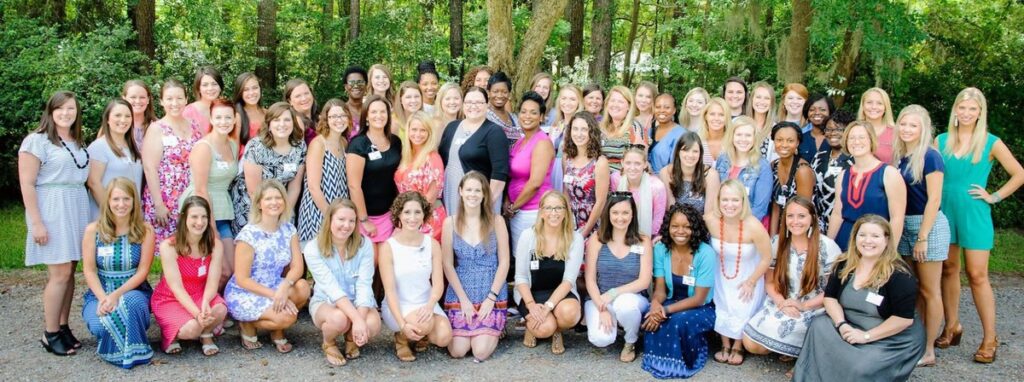

When it came to recruiting its new provisional class, the Junior League of Savannah didn’t just want to attract a large and diverse group of women—they also wanted to firmly set their expectations for what will be asked of them now and into the future as active League members.
To do that, they had to identify whom they would target, and where. The “where” was a particular challenge for the League since its jurisdiction covers the entire Georgia coast, as well as the southern coast of South Carolina with members up to 90 minutes away from headquarters. Because of this, they focused recruitment efforts more heavily in the outer lying areas and adjusted obligations to accommodate those who had to travel.
To be most effective, the JLS broadened its recruitment strategy to include in-person and virtual recruitment socials promoted through social media. As a way to boost engagement and strengthen relationships, provisional members were clustered into small groups based on zip code. Each group had a provisional advisor—an active member that helped encourage engagement, plan socials, and communicate important information for the duration of the new member program.
The JLS realized that if they could improve the membership experience from day one, it could have a profound positive long-term effect on the volume of their League and the satisfaction of their members.
The JLS was able to increase and retain new members, engage its members in a meaningful experience, and generate new leaders for the League. And the community benefited from three provisional projects that the new member class researched, developed and executed.
The Savannah group compiled 300 Confidence Kits, containing hygiene products for underserved children to increase confidence and good habits. Golden Isles held drives to collect items for Teacher Toolkits to distribute to children in need of school supplies. And South Carolina organized a Spring Day of Easter including an egg hunt and dinner for families staying at domestic violence shelter as well as donating contributions from a book drive to the shelter.
To this day, a number of the small groups are still meeting for holiday dinners, girls’ nights out, and rallying around each other if one member is going through a tough time. The JLS’s work in Recruitment and Engagement shows us that bringing women leaders together isn’t just about helping the community, but forging the bonds that make us feel like a family. And when you have a connection like that, the potential for doing great things is limitless.
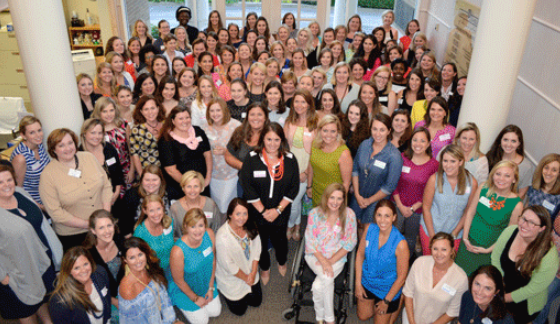

This year's Membership Recruitment and Engagement Award goes to the Junior League of Birmingham's Membership Matters program.
After a historically low provisional class of 80 in 2013, Junior League of Birmingham leadership saw a problem…and an opportunity.
The problem was the need to attract and retain new members…the opportunity was looking beyond admissions to develop a strategic approach that addresses each aspect of membership – Provisionals, Actives and Sustainers.
The program is called Membership Matters, and here are some highlights. The opportunity with Provisionals came with reducing the admissions age to capture recent college graduates before they commit to other groups while also changing the focus of admission sessions from membership requirements to demonstrating the benefits of joining the League.
For Actives, the opportunity came in strengthening first- and second-year members’ bonds with the League by re-assigning membership advisors to membership years rather than placements and creating a monthly membership advisor check-in program.
For Sustainers, the opportunity came with creating a stronger bond through a Sustainer advisory group and outreach to Sustainers who have recently resigned while adding events aimed at attracting and retaining younger Sustainers.
And by the way, JLB’s provisional class has doubled in size.
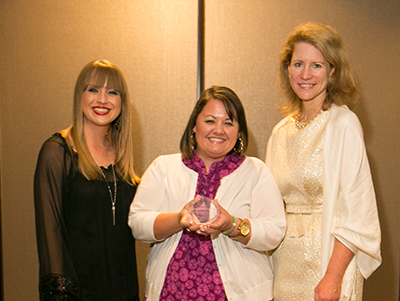

The winner of this year's Membership Recruitment and Engagement Award is The Junior League of San Angelo's "Be Flexible, Be Visible" initiative.
Due to a progression of stagnation over several years of recruitment numbers, culminating in a class numbering in the low 20s and a drop in provisional retention to 67% in 2012, the Junior League of San Angelo was shrinking to a membership size that could not sustain current projects and fundraisers. With a renewed focus on long-term growth, JLSA created a multifaceted program to reshape League's visibility, requirements, and training to better match the needs of their current and future Provisional membership.
The "Be Flexible, Be Visible" initiative sought to improve their provisional recruitment and retention by changing their requirements to fit a wider demographic, expanding the provisional curriculum to include committee experience and mentorship for broader exposure, and leveraging social media to showcase the League's community work and outstanding membership.
After full deployment of this initiative, provisional membership retention increased by 108% in one year. That following spring, JLSA recruited their largest provisional class on record at 47 women for the 2015-2016 league year, a 124% increase from two years before. This current class is also the most diverse in age, ranging from 23 to 46 years old. Interest in membership has only continued to grow since the start of this league year, and currently they have 110 women on their recruitment list for the 2016-2017 provisional class.
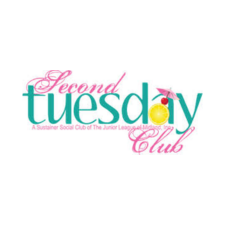

This year’s Honorable Mention for Membership Recruitment and Engagement goes to The Junior League of Midland's Second Tuesday Club.
In 2011, the Junior League of Midland, Inc. began an initiative to reenergize Sustainer membership and involvement in the League through the establishment of a social club called The Second Tuesday Club (STC). The concept for the club is to organize multiple social events for resident Sustaining members utilizing League Headquarters, local cultural centers, and member homes as venues. STC events are held on the second Tuesday of the month from September through April and include day and evening functions. All events are planned and facilitated by Second Tuesday Club member volunteers.
Two past Presidents of the Junior League of Midland created the Second Tuesday Club. Membership for the STC was sought from Sustainers as well as past League members who were not active as Sustainers. Due to the overwhelming response to the initial solicitation for participation, membership was limited and is currently at full capacity with 270 members.
The STC has rejuvenated Sustainer involvement and satisfaction in the League. Measurable outcomes include a significant increase in Sustainer membership, improved participation at League events, broader financial support for League activities and fundraisers, and vastly improved Sustainer satisfaction levels. Recently, JLM was asked by “PALS,” a networking group composed of mid-size leagues in AJLI to present on their Second Tuesday Club at Fall Conference in New Orleans.
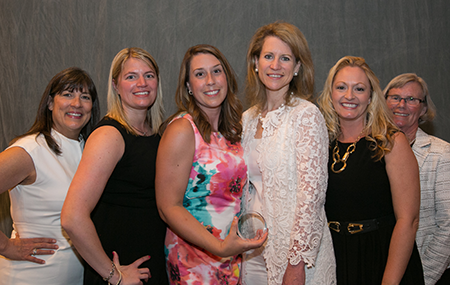

The Junior League of Yakima’s New Member Training Program, which originated from its participation in the Action Learning process, had three objectives:
They took a comprehensive approach. They lined up leading outside experts to train new members. They infiltrated the Membership Committee with members of the Nominating and Placement Committee and vice versa and installed liaisons who floated between new members and the Nominating and Placement Committee, keeping the lines of leadership-oriented communication open. They established a mentoring program for new members that relied on the experience of more seasoned members, and they tasked new members with not only the selection of a focus area but also with a project all their own.
The results of these efforts show nothing less than success. Forty-two new members joined the roster in the 2013/2014 year and 17 in the 2012/2013 year, constituting a 50 percent increase in membership in just one year and an expansion of the League’s impact on the community. In addition, various new members have already served in leadership positions within the League and retention rates have improved.
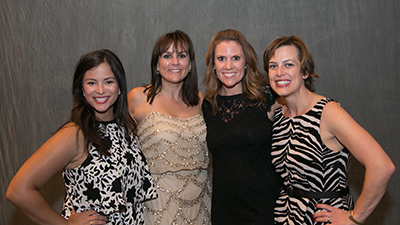

Provisional Experiences was the concept The Junior League of San Diego established to thwart a disconnectedness its newest members were feeling upon graduating from a comprehensive training program. A traditional curriculum integrated with an opportunity for them to form 10 to 15-member groups for the purposes of producing a mini fundraiser to benefit a community partner, Experiences at the same time promised to help the League expand its supporter base and build its brand within the community. Proceeds were then used for a mini IMPACT program that met the need of a community partner. were feeling with the With the onset of its Centennial in 2011/2012, the League saw an opportunity to launch an aggressive fund development initiative consisting of its first-ever capital campaign, part of which would be used to renovate its new Headquarters. Following a feasibility study recommending a $1,000,000 goal for renovations, a Centennial Project, and a public relations plan, the Board approved a $1,000,000 capital campaign.
During a two-year “silent phase,” 14 Actives and Sustainers solicited prospects in person for gifts of $10,000 or more. With $1,175,000 raised and aware their capital needs were greater, the team entered a “public phase” in which every member was approached. When it closed in the spring of 2014, the campaign had raised more than $1,405,000, all of which came from individuals. Four percent originated outside the League.
Several tangible outcomes resulted from this work. Headquarters has been renovated and the Apple a Day Healthy Living Initiative, the League’s Centennial Project that focuses on access to and education about healthy food, has been funded. In addition, the League was able to invest in public relations and members have taken ownership of fund development, a benefit that lasts.
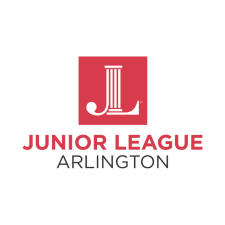

The Junior League of Arlington’s “Appreciate! Collaborate! Educate!” initiative was honored with this year’s Award for Membership Development after having turned around five years of membership decline and a 20 percent deficit in fundraising.
The League’s four-pronged strategy yielded impressive results. The new “dual entry” Provisional Program brought in 59 new members, a staggering 400 percent increase over the previous year and a record-setting haul since 1995. The Emerging Leaders Institute provided a skill-based competencies curriculum to 28 members. During National Volunteer Week, the League issued letters of appreciation, LinkedIn recommendations and a new JLA lapel pin. A voluntary co-mentorship program for Active and Sustaining members successfully retained members and fostered connections. Membership is now up to 500, or a 15 percent bump over the previous year.
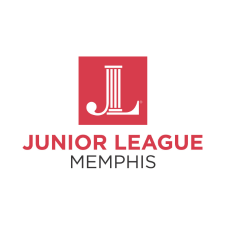

The Honorable Mention in Membership Development went to The Junior League of Memphis for its multi-faceted Provisional Recruitment Campaign, which produced a 29 percent increase in the size of the Provisional class and a retention rate of 96 percent.
This campaign featured a full-court media blitz, including membership and recruitment videos with testimonials and t a highlight reel of the League’s impact on Memphis with a call to action. The videos were shared on social media, and members were given recruitment messages to post on Facebook and distribute to friends and co-workers via email, all in compliance with a strategic plan.
In addition, members became vocal ambassadors for the League and hosted meetings and open houses.


The Junior League of Pasadena won the 2013 JL Award for Membership Development for their Membership Engagement Initiative.
Program Goal
Faced with a troubling, five-year decline in new membership and disconcerting rates of retention over the same period, The Junior League of Pasadena developed a five-pronged membership engagement initiative to improve retention and recruitment.
Program Descriptions
The first phase of innovation centered on recruitment, which was modified to include three educational open houses with visits from Sustaining members and walking tours of the League’s headquarters.
Secondly, Provisional training was enhanced with bootcamp-style team-building exercise, a JLP 101 seminar, and a bus tour of Pasadena featuring stops at League projects but also spots in need of help.
Integrating Provisionals into the membership was the focus of phase three, which included both planned socials with Sustaining members and the support system of a buddy program. In the fourth phase, new members were tasked with managing every aspect the newly adopted Kids in the Kitchen program, from logistics to marketing. To cap off their integration experience new members were encouraged to attend any of several socials with a variety of themes designed to promote friendships and connections.
Evaluation
The League’s program produced some significant results: retention rates that spiked from 16 percent in 2007-2008 to a high of 76 percent in 2011-2012 and recruitment of as many as 63 members in a new class.


The Junior League of Northern Westchester won the 2013 Honorable Mention in Membership Development for its impactful new Points System.
Program Goal
The points system was developed in response to research showing that members were feeling overwhelmed and under-equipped to meet League requirements amidst the demands of their careers, their families, and their other volunteer commitments.
Program Description
Because the existing requirements model was perceived as too rigid and inflexible to meet the members’ needs, the League put into place a points tracking system that members could use to fulfill their requirements. The new system, which is easily managed by the League, went into effect in the 2010-2011 service year.
Evaluation
In addition to a more positive perception of the League by members, including new members, statistics show the change in members’ attitudes. Before implementation, a survey showed that 60 percent of members found their membership requirements to be “just right,” while 33 percent believed there were too many requirements. Following implementation, the “just right” crowd had grown to 73 percent and the “too many” crowd has shrunken to 22 percent.
Other improvements included growth in the percentage of members very satisfied with their overall League experience, which went from 38 percent in 2009 to 46 percent in 2011. On the flip side, in 2009, 13 percent reported being not very satisfied while in 2011, the percentage of those dissatisfied dropped to eight percent.
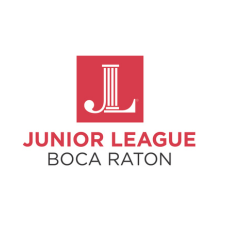

After watching the Provisional satisfaction rate drop significantly over the years, The Junior League of Boca Raton established a new Provisional Curriculum designed to address concerns about the future viability of the League.
The plan included a meeting structure that was grounded in The Junior League Mission:
The meetings featured leaders from all Councils who spoke about their roles and how they related to the larger Mission. The monthly Provisionals meeting also incorporated a “Done-in-a-Meeting,” or DIAM, component that allowed hands-on events like filling backpacks with food donated by the League as a whole, including Provisionals.
Provisionals were paired with Active members in a mentoring program that covered League terminology and provided guidance on how to fit in quickly and easily to their class and into the League itself.
In addition, new members were given the option of working on one of five Provisional Projects, all of which were tied into the work of existing League committees. Easy entry points were available for working on specific initiatives or in fundraising, and each of the Provisional Projects had clearly defined leadership roles. Additional training sessions highlighted a variety of paths available to each member throughout her League career.
The results are that of 69 Provisionals, 93% are now Active members in good standing, and 12 have taken on leadership roles.
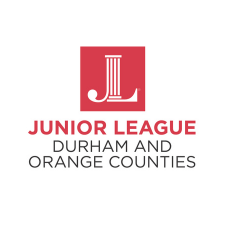

To head off a fall in membership from 192 at the start of the 2006-2007 year to 158 at the end of 2008-2009, The Junior League of Durham and Orange Counties developed a new mechanism for tracking membership requirements, providing mentoring and creating a feeling of connectedness among members.
The League replaced placement advisors with a new membership advisor program that guaranteed a close connection between committed Actives and members at the committee level, an intersection where the work is done, but where it’s sometimes easy for some members to get lost.
The solution incorporated the following innovations: standing committees were condensed and combined; and membership advisors were placed on each committee where they participated fully in committee work and tracked committee member requirements while mentoring committee members.
In addition a membership advisory committee was formed to serve all of the other committees in a human resources capacity.
As a result, Active membership is now more than 215, up from 162 in the first year of the program. Members are happier because they now have mentors who can help them make the most of their time in the League. Advisors get closer to their members and can offer better insight into placement opportunities, including potential leadership roles.


Program Goal
The goal of Junior League University (JLU) is to fully connect transferring members to The Junior League of Houston. The purpose of JLU is to solve the problem of transferring members not feeling like a full member and not having an early community project experience.
Program Description
JLH has a steady and substantial volume of approximately 90-120 transfers per year. The challenge is to involve them quickly and build a meaningful connection to the League. The program starts with an orientation and learning about the greater Houston area. Next they are introduced to League community projects and have opportunities to connect with other members. They are provided advisors who assist the Transfers become the best community representatives they can be.
The program streamlined the process of introducing each transfer member to the Houston area and to JLH projects. The purpose was to quickly obtain the knowledge about becoming a fully engaged member and rapidly connect to advisors and other members. JLU provided classes, community placements, and meetings to accomplish this in a timely way. In short, they get connected to a community program quickly. Having this early experience fostered their connection and appreciation of JLH.
Results/Outcomes
JLU connected transferring members into the League and enabled their participation in a community project. This early connection to a meaningful project has resulted in more satisfied members. Transfers enrolled in the JLU program were happy with their community placement. They were given a hands-on community experience and learned what impact JLH projects are having. Overall transfers became more fully trained in JLH operations and more quickly felt that they are valuable members contributing to the mission. Through a combination of an orientation, educational meetings, community placement and social gatherings JLU successfully connected transferring members to the League.
Evaluation
JLU training sessions are evaluated and there has been ample anecdotal evidence from transfers and advisors demonstrating that the program is working to integrate transferring members. Some of the lessons learned include -there is no substitute for direct feedback from Transfers who are being impacted by the programs.
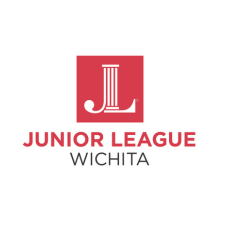

Program Goal
The goal of Community Credit System (CCS) is incorporate meaningful community work into the Provisional and Active membership requirements. The program offers flexibility and provides members the power to choose from a menu of options. Specifically the League gave women the power to choose how to spend their volunteer time and to experience meaningful community impact. It also recruited women non-profit leaders by offering credit for their professional experience.
Program Description
The CCS is a new system of managing requirements, individual member interests and the needs of The Junior League of Wichita. The CCS requires members to fulfill a certain number of hours, chosen from a wide variety of training, fund development and community service opportunities. In choosing the community service opportunities the League made a point to partner with direct service agencies that were addressing current community needs.
Members choose from a menu of options. Credits were earned by the members by working through the community and learning about what the agency does. The League provided training and partnered with outside organizations such as the Wichita Nonprofit Chamber of Service to expand the training available to better meet member needs. Members also received credit by supporting the League fund raisers. Their new structure used a sliding scale of requirements. The longer the member is in the League the fewer hours the member is required to do.
To better meet the needs of individual members, they were empowered to seek out agencies they were interested in. There is flexibility with the amount of hours required. Members have the power to choose specific activities they have a special interest in. New members have similar opportunities but there is great emphasis on orientation. New members are required to fulfill forty community credit hours. Ten of these hours comprise of tours or visits to the agencies.
Results/Outcomes
The CCS focused directly on removing a major obstacle to achieving a better League experience, namely the requirement structure. The volunteer assignments are varied and include most importantly community work addressing important community needs.
The League targeted female community leaders to participate in League programs and to join as members. They offered them community credit hours to entice them to join. New members visited and worked with many of these agencies. The link between membership and doing meaningful work in the community became crystal clear. Members came away with a greater knowledge of community issues, connected with women leaders and volunteered in direct service. The new approach offers members and opportunity for impact in the Wichita community.
Evaluation
Over the past two years Provisional membership has increased by 20 percent representing 132 new members. The total membership was declining, but now the last two Provisional classes were the largest in the League’s history. Members are investing more hours and exceeding their requirements. The total hours donated from all members have increased over three years from 525 to 4,496. This demonstrates members choosing to invest more hours to League programs because it is meaning and meets their personal interests.


Program Goal
The Junior League of New Orleans goal was to develop a new strategy for membership recruitment and retention in a city undergoing dramatic demographic change.
Program Description
With its community devastated by Hurricane Katrina, the League needed a new strategy for recruiting and retaining members. Many members lost their homes and were forced to relocate. Also there was an influx of bright young people to the city creating a possible source of new members. To remain relevant to a population in the midst of radical change JLNO re-positioned itself as a player in the rebuilding of New Orleans and implemented new approaches to recruiting new members.
The League broke with tradition and opened recruitment to women who lacked relationships with Active members and allowed any Active member to sponsor up to two Provisional members. If a strong candidate lacked the required signatures, members of the Executive Board were permitted to serve as the second sponsor. The League also used their website as a recruitment venue. Any women interested in joining could easily access all the information on the website. The League re-vamped its logo to depict the rebuilding of the community. JLNO also invested in new community projects to respond to the city’s most urgent rebuilding needs. This created a higher public profile for the League and helped get the attention of potential members.
Results/Impact
The strategy resulted in the largest Provisional class ever, and significantly improved rates of retention. The record class of 150 Provisionals was a milestone and an indication of a successful approach of developing flexible policies. For the first time membership for women without prior connections to the League were welcomed. Every member was expected to help recruit prospective members and help every new member feel welcome. Reaching out to new members became a part of what you are expected to do.
Evaluation
The new sponsor pool is being tracked to measure how many new members are coming due to the new flexible sponsorship policy. This group is also checking in on the new members to ensure they are getting what they need to remain members.


Program Goal
To deal with a decline in membership and troubling retention rates, The Junior League of London developed a five year Strategic Plan for Membership. The plan sought to increase member recruitment and retention.
Program Description
The JLL began by undertaking an assessment of membership levels of the past few years. Some key insights emerged. First, they have been churning or losing existing members. Specifically, many Actives were leaving in their first 18 months. Secondly, Active members transitioning to Sustainer were leaving as well. The assessment also uncovered additional key issues negatively impacting the membership. Members were not getting enough of an opportunity to meet new people and not receiving meaningful volunteer service in the community. Also the requirements were not flexible enough to allow members to have a meaningful experience.
To improve member engagement, the League gave all members an early opportunity for hands-on work in the community. More opportunities to directly serve the community were offered. In addition, the League gave members flexibility in fulfilling requirements, reduced meeting requirements and the time requirements for Actives to reduce their commitment loads. Also JLL eased the path for members seeking leaves of absence. Sustainers became increasingly engaged when they were granted the same voting rights as Active members, and the appointment of Retention Champions further helped in the effort to reinstate former members.
Results/Outcomes
The membership base experienced growth for the first time in three years. Most significantly, the culture shifted to becoming more member focused. Policies regarding membership requirements (leave of absence, meeting attendance, volunteer hours, etc.) were made more flexible to reflect the life stage complexion of individual members. Instead of focusing on narrowly defined requirements, members could comfortably choose an option that better meets their particular needs.
Evaluation
A formal survey of membership demonstrated that 84 percent agreed they were making a positive impact in the community.


Program Goal
In 2007, The Junior League of San Antonio established the New Actives Membership Program designed to help members bridge the transition from their Provisional year to Active status and thereby strengthen their involvement in the League at an early stage of membership. In the first Active year, members no longer have access to the guidance that characterizes the Provisional period. The New Actives Program offers mentoring and additional resources to help them navigate this new phase of membership, deepen their commitment to the League, and consider taking on leadership positions.
Program Description
Now in its second year of operation, the New Actives Program comprises three components that are intended to strengthen the connection between the New Active and the League:
Results/Outcomes
The retention of New Actives has improved dramatically since the inception of the program: Dropout rates went from 50 percent to below 20 percent. The women who participated in the first New Active class are now in their second year of Active membership, and half of them are serving in leadership roles, representing a dramatic increase in the number of members who have assumed leadership responsibilities so early in their tenure in the League.
Evaluation
Evaluation parameters include: (1) tracking communication between the New Active Chair and the New Active Class to ensure that the Single Point of Contact remains a viable component; (2) monitoring involvement by New Actives through use of the special newsletter and their attendance at social and educational events; (3) monitoring the participation of New Actives in the Mentoring Program; and (4) tracking the number of New Actives who seek leadership roles in subsequent years.
Impact
Early results indicate that the program will continue to pay dividends for years to come. By proactively maintaining the engagement of Provisionals into the first Active year, the program has increased the number of members who succeed in those early years, reducing frustration with administrative processes and inspiring them to become more deeply involved in community projects (three members from the 2007-08 class are working in the League’s signature program, LITERACY San Antonio).
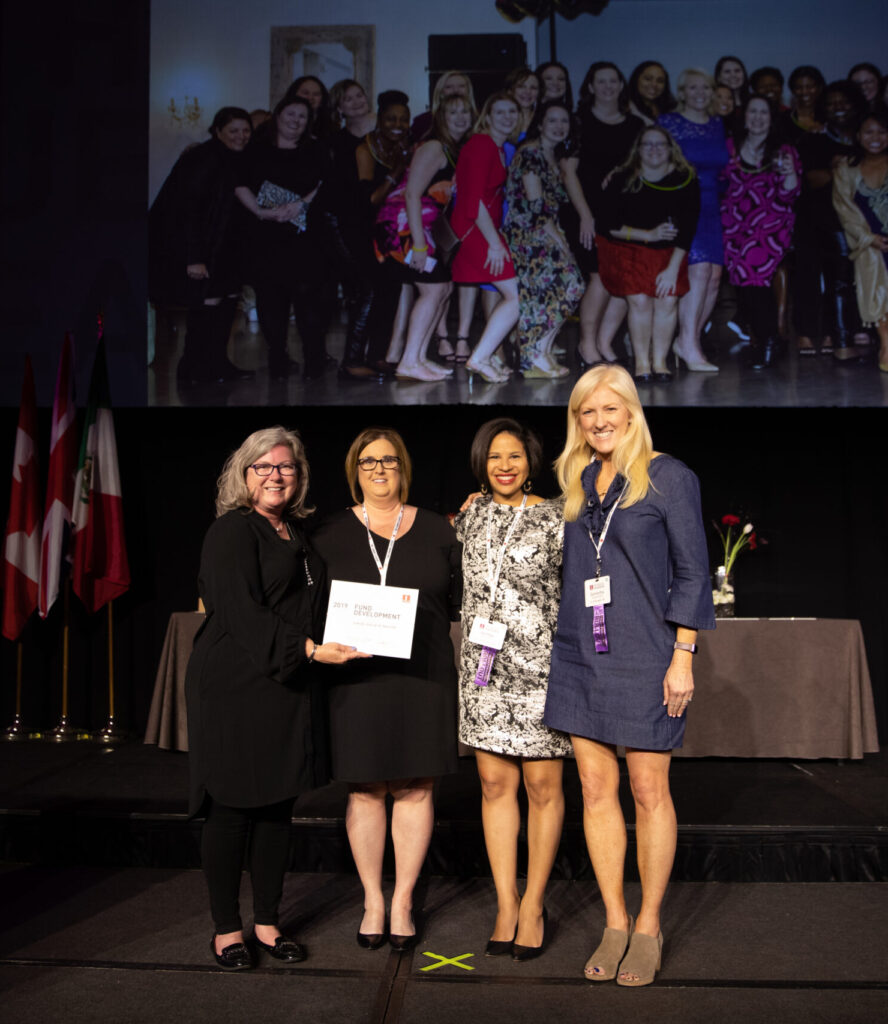

Program Goal
The Junior League of Raleigh is committed to staying on the leading edge of technology in delivering services to its members. The intent is to make information more accessible and timely and create supportive resources for members’ development. The League has transformed many previously manual processes to Web-based applications, a critical initiative being Online Voting, which was introduced in 2007.
Program Description
The League’s online presence has grown steadily in recent years with online placement procedures, event registration and newsletter. For the voting initiative, the League consulted Trebax, the web design firm that created earlier online templates.
In the first year of online elections, candidate information was mailed, as required by the bylaws, and a postcard was sent closer to the election date. By the second year, the bylaws were amended to allow for electronic mailing of voting information such as nominees’ biographies and photographs.
Members were asked to log on to the voting site using their AJLI number and password. The required quorum of one-fifth of Actives was reached within a few days. Once they were logged on, members were again able to review the candidates’ information prior to casting their votes. Voting was enabled on the website for a one week, with a reminder sent out by broadcast email. Once a vote was registered for a member, she could not vote again. The process was readily embraced by members: Although provision was made for members who did not have the ability to complete an online ballot, only two such requests were made.
Results/Outcomes
Online Voting enhanced the accuracy and reliability of the election process and reduced the time spent disseminating and counting ballots. Specifically, the new process:
Candidates are now notified of their result by the Nominating Captain prior to the General Membership Meeting (GMM), at which the rest of the membership is informed, reducing possible embarrassment at not being elected. The new process also makes voting results known almost a month earlier, and gives the President-Elect more time to ask members (including those who may not have been elected) to fulfill other, non-balloted leadership positions. This enables the leadership team for the following year to begin assembling and organizing earlier.
Evaluation
Online Voting was evaluated by tracking member’s usage of the Online Voting site, their feedback regarding the various elements involved, and the effects of the system on League operations and member behavior.
Impact
Online Voting has improved the election process for candidates, members (both voting and nonvoting) and administrators. Its impact has extended beyond the voting system:


Program Goal
The Junior League of Chicago's Communication Campaign was conceived in response to members' need for greater, faster, more-personalized access to League information. Achieving this would strengthen members' connection to the League and to the spirit of volunteerism and advance the League's impact in the community..
Program Description
The League structured a communications plan based on its operating plan and on an assessment performed in 2005-2006. Recognizing that poor communications lay at the root of many organizational problems, the League investigated how its information flow could be improved. Focus groups and exit interviews with departing members identified things that were working well, but also highlighted what the League needed to improve.
The Communication Campaign addressed audience, key messages and desired mediums. Its goal was to get the same information in front of the membership multiple times and through multiple channels. It laid out tasks and their owners, completion dates, methods of delivery, status updates, and needed approvals and feedback; and it was reviewed on a regular basis to allow timely realignment or modification. Features included a new email distribution system; a monthly online newsletter that improved information sharing; a new website that facilitated timely communication with members; branding that integrated Web and print materials; and the introduction of fund-development software. In addition, related committee responsibilities were realigned and a staff member hired to handle the new tasks. The changes enabled the entire staff to have access to important information that previously had been controlled by one person, thereby improving the efficiency of services to members.
Results/Outcomes
The Communication Campaign produced fast Results/Outcomes in 2006-2007: New-member recruitment exceeded its goal by over 8 percent, with a corresponding increase in the number of women attending information sessions. Contributions to the annual fund outpaced the previous year's, surging ahead by $10,000, at one point. Attendance at events increased by an average of 30 to 40 people. Actives increased their use of electronic tools more for communicating within the League and for sharing information with the community. Sustainers indicated their interest in joining the system. And committees adopted the branding tools and protocols in publicizing their events.
Evaluation
The Campaign was evaluated for effectiveness, efficiency, cost vs. benefits and level of usage.
Impact
Usage levels indicate that members have accepted the electronic tools to facilitate their interaction with the League. The increased reliability and timeliness of record keeping and information delivery through the website has meant that more members are accessing data there, resulting in fewer calls to staff for basic information. Also, by delivering more information electronically, the League reduced printing and postage costs, saving close to $12,000 for the year. Looking ahead, the League plans additional website modules to allow for better dissemination of membership and placement information, and will continue to strengthen its branding.


Program Goal
Recognizing that women's lives have become increasing busy with career, family and personal commitments, The Junior League of Orange County instituted the Rapid Transition Provisional Program. The program provides expedited training, faster integration into the League and more volunteer opportunities – collapsed into a shorter Provisional period.
Program Description
In 2005, The League's research indicated that new members wanted to "jump into" their community work and the full League experience as soon as possible. The following year, the League responded by introducing a revamped Provisional Course based on a five-point, goal-oriented strategy:
Outreach to prospective members has been made more systematic and included invitations to League events and more information about the Provisional Program itself. Training is concentrated into a one-day orientation that contained half of the Provisional requirements. This is followed by three small-group meetings that serve as educational and networking opportunities. Mentoring and support are provided by the Provisional advisors as well as selected Actives.
Results/Outcomes
The combined size of the two incoming Provisional classes has remained steady, virtually the same as that of the previous one-year classes. The annual attrition rate within the Provisional class has decreased dramatically, falling from 33 percent in 2004-05 to 17 percent in 2006-07. And there was an increase in the number of new members seeking leadership placements between 2005-2006 and 2006-2007.
Evaluation: Surveys of new members indicate that they appreciate the flexibility of having two opportunities to join the League each year, of doing so at a desirable pace, and of being able to participate sooner in the League and in community service.
Impact
The Rapid Transition Provisional Program has reduced the cost per trainee by almost 60 percent. Surveys indicate that retention of Actives with one to three years of tenure – a critical group – is increasing, due in part to mentoring and personal connections that are integral parts of the new program.


Objective
The Junior League of Atlanta decided to create a State-of-the-Art Website in order to streamline a variety of procedures relating to membership and information delivery. The goal was to improve and expand the League's ability to engage and sustain an active membership base. A second objective is to make information about the JLA's information accessible to the public. The public website would be expanded and a members-only site created.
Strategy
The project was designed to improve communication among members and to encourage the use of technology. To ensure member buy-in, the League was careful to ensure a seamless transition to the increased use of technology. Over an 18-month period, the site was extensively and deliberately rolled-out and new functionality added gradually. In addition to ongoing meetings with staff, leaders and committees, initial proto-types were developed and tested.
The first phase of the plan focused on research and the creation of a new position of Director of Information. An extensive review and environmental scan resulted in the preparation of custom software to meet the varied needs of the League.
Once the website began to take shape, the functions that were added included: fundraising, e-commerce (for the sale of cookbooks and tickets to events), dues collection, RSVP to meetings and events, member recruitment, the Provisional program, placement, training, marketing, scheduling, member profile, and email communication.
Results
JLA members now have the ability to handle membership, administrative and volunteer activities conveniently and securely via the website.


Objective
In response to a decline in membership over the last five years, The Junior League of Saint Paul created a three-year rolling plan to grow and develop its membership. The goal was to find new, dynamic women and to develop internal nurturing and retention practices, while meeting the mission and not compromising on standards.
Strategy
For the five years preceding the project, League membership declined by 50 percent. In fact, there was more than a 50 percent drop in Active Members.
The Membership Committee met monthly and put together a recruitment program called "Ready, Set Grow." Ambitious goals were established; to achieve an active membership of 125 by May 2009, with annual new member classes of 30 to 40. The program included:
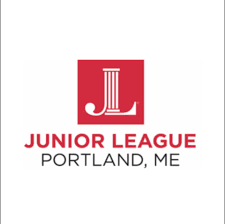

After witnessing class numbers drop by nearly half over two years, The Junior League of Portland, ME sought a solution for long-term success in membership recruitment. The new program developed interactive training experiences, more mission-focused projects and additional recruiting events and meetings that were more visually appealing and inspiring. Since implementing this new approach to reaching out to Provisionals, Actives and Sustainers, new member classes have doubled in attendance.
The Junior League of Portland has set an example for success in attracting, retaining and motivating members to be lifelong advocates of the Junior League Mission.
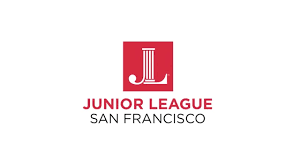

Faced with declining morale and eroding membership among Sustainers in recent years, The Junior League of San Francisco launched a program to instill pride, build excitement and increase involvement among Sustainers in meaningful ways. The program is known as WATCH or Women At The Center Honors and celebrates extraordinary women who through philanthropy or community leadership have made valuable contributions to the quality of life in the Bay Area.
With contributions from community donors and event sponsors, the event honors League members and non-members with prizes ranging from $300 to $1,000. Launched in 2004, WATCH is the first completely Sustainer-conceived and executed community fundraising event in the JLSF's 94-year history.


Finding the right committee assignment for each member is a critical function that directly impacts membership satisfaction. The Junior League of San Francisco created a highly innovative Online Placement Website where members can ask questions about the inner workings of committees, see how they fit with their skills and goals and chart a long-term leadership and training path for themselves. As a result, the Placement Committee was able to place over 550 members by early May and have seen the number of Active members using the website soar to over 500.
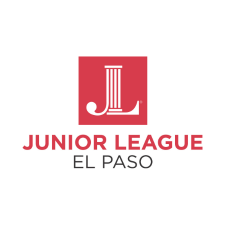

The Junior League of El Paso revived the concept of the Junior League Follies stage show with a project titled "The Fabulous Follies" to help celebrate the League's important milestones during the 2003-2004 calendar year, which included the League's 70th anniversary, the 30th year of their annual fundraiser "A Christmas Fair" and the League's original cookbook "Seasoned with Sun's" 30th year in print. In addition to celebrating the League's achievements, the show was designed to utilize Active, Provisional and Sustaining members as cast and crew and to motivate sustainers who had not participated in League activities for many years to once again be involved in the Junior Leagues. "The Fabulous Follies" debuted at the 30th annual "A Christmas Fair" and exceeded attendance numbers of any of the League's special events with over 600 guests. The League also enticed over 60% of their sustaining members to participate in or attend the Follies. The event greatly strengthened bonds between every classification of members and re-enlivened League pride.